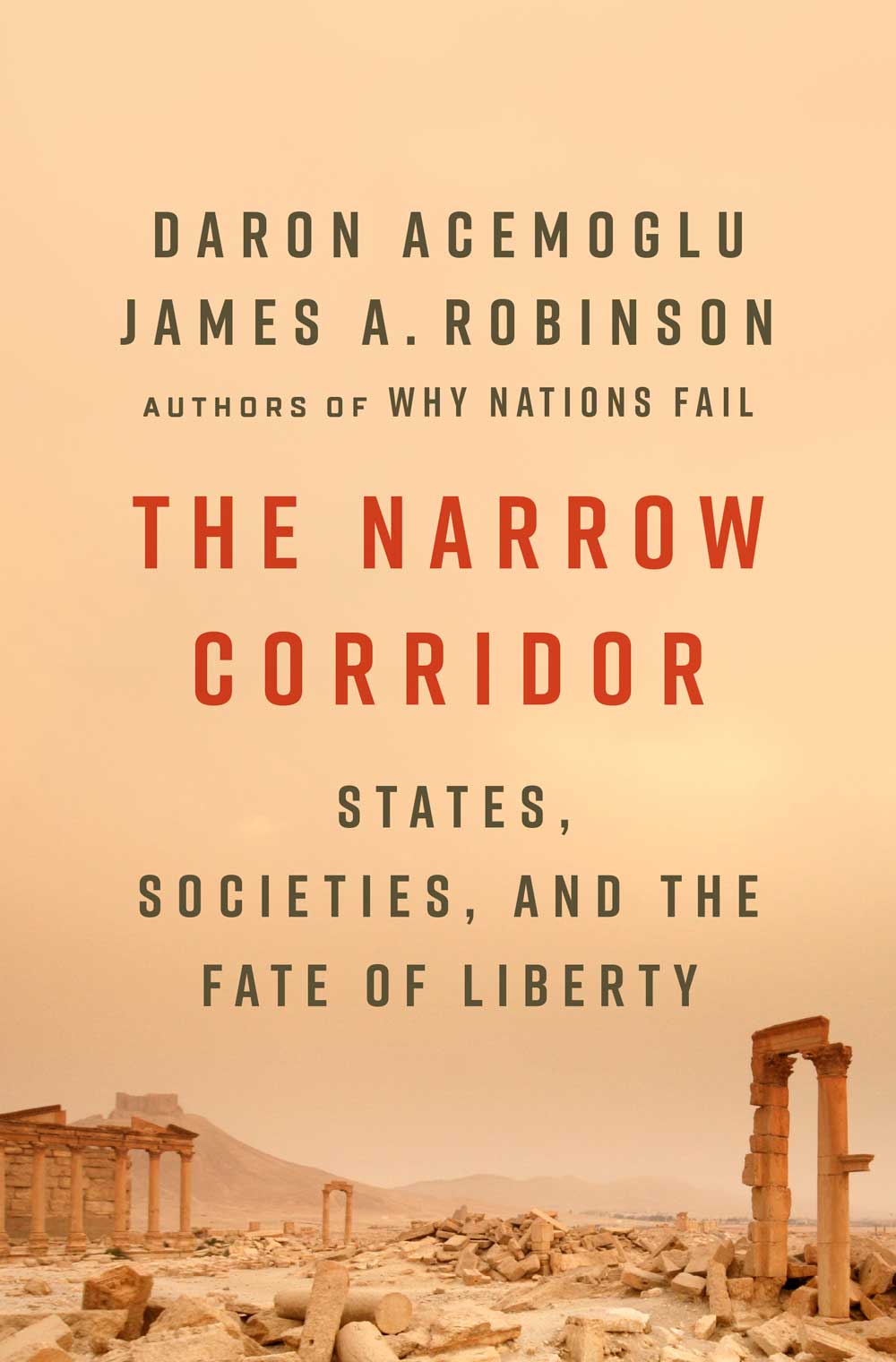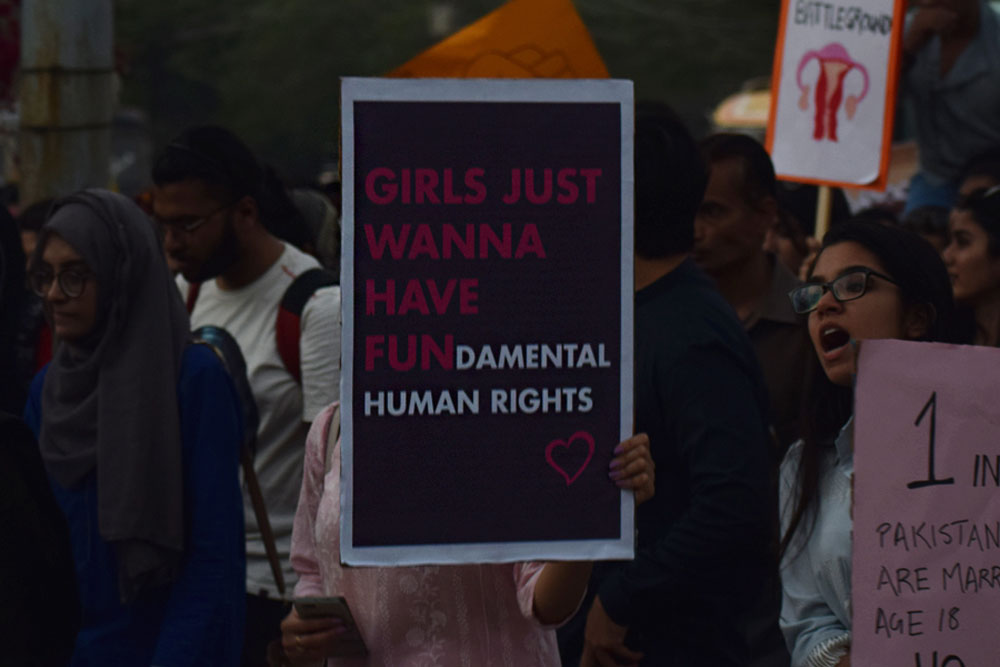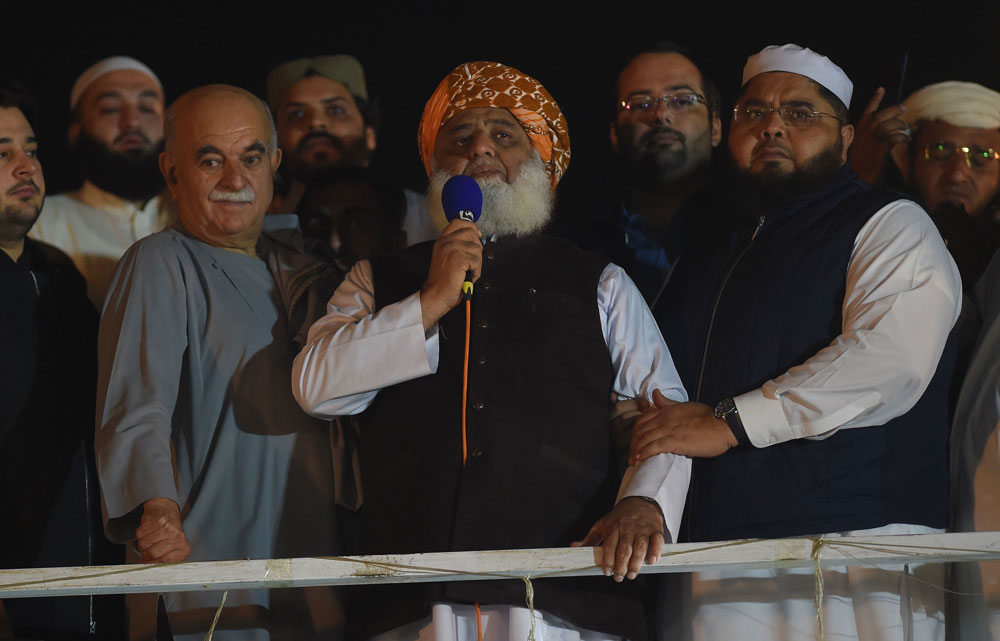"Then it all crashes down
Then you break your crown
And you point you finger but there’s no one around
Just want one thing
Just to play the King
But the Castle’s crumbled and you're left with just a name
Where's your Crown, King Nothing?"
Meet Thomas Hobbes. A 17th century philosopher, considered by many as the founder of modern political philosophy and statecraft. In his most recognisable work 'Leviathan', Hobbes points out stateless societies, torn asunder through fear, violence and death. This, according to him was because of the "state of nature"—men instinctively programmed to destroy or subdue the other if they both desire the same thing.
Hobbes argues that, unless there is a system in place exercising centralised control, man will naturally gravitate towards destruction, which Hobbes refers to as 'Warre', a situation of war of all, against all, where man's life is "solitary, poor, nasty, brutish and short."
Hobbes' stresses that the only way for people to escape this anarchy is to submit themselves to the idea of a 'Leviathan', which means a state, commonwealth (and even a great sea monster according to Hobbes). The state is the common power that keeps men in awe.
This submission to the state is what he refers to as the "social contract", where citizens, as a contracting party, agree to forego their capacity for destruction and anarchy and pledge allegiance, in return for the state promising them protection, resolving their conflicts and providing them services, amenities, and economic opportunities. Thus, man surrenders to the Leviathan, which then monopolises the right to violence for the purpose of maintaining order and punishing transgressors.
Hobbes primary assumption rested on the premise that both man and state would make nice and keep their ends of the bargain in the social contract. This is never guaranteed.

The state may perform its role of protector and arbitrator, but equally it may be despotic and fearsome. It may silence and dominate its citizens and may be impervious to their pain. Alternatively, citizens may become powerful enough to render the state absent.
Authoritarian regimes such as China and Saudi Arabia conjure the image of the despotic Leviathan. At the other end of the scale, progressive European states such as the United Kingdom depict the Leviathan as submissive and shackled, meaning that society has exercised suitable checks and balances on it through vigilance, a robust participation in politics, and an independent legal system.
In this backdrop, let's imagine the Pakistani state as Hobbes' Leviathan.
The image summoned would be consistent with that of a despotic, decrepit, and out of touch sovereign that, willfully or with grievous neglect, repeatedly breaches the social contract with its citizens. It also suffers the malaise of being woefully out of touch with its citizen's needs. In both its avatars, as a tenuous democracy and a military dictatorship, the state has thrived on the dominance and the infantilisation of its citizens.
Consider a recent example that may sound innocuous to many but provides a telling snapshot in how the state views its citizens. The office of the District Magistrate/Deputy Commissioner of Islamabad issued an "Advisory for Hostels in Islamabad". The 'advisory' stressed the need for regulating the movements of students and, in its infinite wisdom, established a causal connection with the spread of crime in the city. The hostels were directed to strictly comply with some peculiar strictures, such as maintenance of records regarding entry and exit of students in hostels, not allowing students to stay out "unregulated" and, my personal favourite, forcing every student to telephone their parents after 10PM if they wish to step out of the hostel. The advisory ended with threatening legal action against the hostels for failure to comply with its recommendations, which contradicts the idea of an advisory in the first place.
Ignore for a moment the multiple legal issues relating to the advisory (no law is cited which gives the Deputy Commissioner punitive powers against hostels or the arbitrary restriction of the right to movement). Focus instead on the thought process that crime can only be reduced by restricting movement, or that calling a parent prior to stepping out at night shall somehow render the streets miraculously safe. The advisory ignores that young adults have individual agency without being mollycoddled in such patronising terms. The state represses when it should serve, which has been its default position.
The Pakistani state as Leviathan, whilst exercising its natural state to dominate citizens, initiates measure and issues proclamations that are clumsy and counterintuitive. Recently, the Pakistan Electronic Media Regulatory Authority (PEMRA), in exhibiting one of many displays of ineptitude, issued a notification that Hafiz Hamdullah, a JUI-F spokesperson and ex-senator, was declared a "confirmed alien" by NADRA, which had proceeded to cancel his Pakistani citizenship. The intention behind this act was apparently to limit coverage of JUI-F's march against the PTI government, and PEMRA proceeded on the bizarre premise that as a confirmed alien/non-Pakistani citizen, Hamdullah could not appear on talk-shows. Predictably, Hamdullah petitioned to the Islamabad High Court, which suspended the notification, post haste. A spectacular own goal by the state, needlessly elevating Hamdullah's profile, who carries an odious reputation of being a misogynist.
Our Leviathan is not conditioned to engage in constructive debate or dialogue. Parliamentarians are slow to new legislation with the current and the previous prime ministers registering appalling attendance in the assemblies. The apex court has created an unwanted tradition of exercising suo moto powers, eschewing traditional due process.
Small wonder then that a former prime minister wished to declare himself Ameer-ul-Momineen through a constitutional amendment. An ex-chief justice of the Supreme Court likened himself and the apex court to a wizened elder whose views are sacrosanct and must be obeyed unquestionably.
The executive passes summaries without considering the legal relevance and consequence of the same and the current prime minister has an affinity for ordinances over traditional legislation. Ideally, the state and its agents wish for their proclamations to be passed without checks or balances and inoculated against public criticism.

In their excellent book "The Narrow Corridor", Daron Acemoglu and James A. Robinson explore the relationship of liberty with the role of the state. One of their hypotheses is the "Red Queen Effect". In the story of "Alice Through the Looking Glass" by Lewis Carroll, Alice runs a race with the Red Queen and realises that they are both running hard in one place and not moving. When the race ends, she exclaims that they have been running at one spot all the time to which the Red Queen exclaims that here you need to keep on running just to maintain your position. Acemoglu and Robinson liken the Red Queen Effect to the state and citizen running together just to maintain both their respective positions. So, if the state is not checked by the citizen, it becomes dominant. However, if the citizen runs too fast, then the state may disappear which is a recipe for lawlessness. If they run together, they grow and flourish as they are mutually cognizant of each other's needs, in the spirt of the true social contract, as envisaged by Hobbes.
The Red Queen Effect has been conspicuously absent in the Pakistani state. Despite the challenges in maintaining a veneer of democracy, the state has, by and large, managed to outrun the citizen. The citizen of Pakistan hasn't evolved to run fast enough to keep pace with the state, and, as a consequence, the state has been found wanting in enforcing laws, controlling violence, resolving conflicts, and safeguarding social and religious freedoms. Despite the presence of the state, the citizen's life continues to be dominated by "Warre".
It would be too simplistic to advise generic prescriptions such as citizens coming out on the streets and raising their voice against structural issues of the state whose default mode is to rule and not to serve.
On paper, the judicial system acts a natural check to a despotic Leviathan, but courts are themselves decrepit and overburdened and justice remains elusive and expensive. Social uprisings against the state are mainly the monopoly of religious and political parties, with smatterings of professionals such as doctors and traders raising their voices for their own vested interests. The evolution of rights and liberty is a laborious process, rendered harder for religious minorities, women, and the economically impoverished. It is also onerous for young citizens to speak independently and critically, as deference to authority has been embedded in their DNA. Yet, arbitrary and discretionary actions can and should be called out.
On many occasions, Pakistani citizens have been robust enough to challenge and ultimately shackle despotic Leviathans. Even though the lawyers' movement metastasized into unbridled powers for the senior judiciary and the bar, yet its role in overthrowing an authoritarian military dictator is unique.

It was social media pressure that highlighted the toxic bigotry of a provincial minister of the ruling party towards a minority class, heralding his (albeit temporary) removal. Conscientious citizens have also come forward to reclaim and lead issues regarding the environment and climate change, whilst the state has typically remained soporific and clueless.
No matter how much they've been ridiculed, it is the current "woke" generation that has been robust in initiating discussions on previously unmentionable issues such as sexual harassment, feminism, and religious freedoms. This is all highlighted through the ubiquitous lens of social media, which has been instrumental in the citizen activating the Red Queen Effect, exposing the state's shortcomings and forcing its hand to act, be it in reversing arbitrary decisions, introducing new laws, or enforcing current ones.
Not all citizens are created equal though. The state since 2011, 2014, 2017 and till the writing of this piece, has been dealt a death with a thousand cuts, with the mobilisation of long marches protesting opaque concepts like electoral rigging, perceived slights on the Finality of Prophethood and our standard bugbear; corruption. It endures till date, a mob propped up by a new saviour, chipping away at the very writ of the state, weakening it profusely and rendering it malleable enough to be brought to its knees.

Whether it is to posit a particular brand of religious belief at the exclusion of others, or reductively holding a particular class of elite to blame for everything wrong in society, at the exclusion of other organised elites, a particular breed of citizen always outruns the Leviathan. Small wonder why the PTI dharna of 2014 spearheaded by Imran Khan and the current one orchestrated by Maulana Fazl-ur-Rehman are so popular. They eschew structural issues that require time to evolve in favour of fixing it all by force. It is a recipe that is both extra-legal and fraudulent as its aim is not progress, but to specially weaken the Leviathan with predictably devastating consequences, such as erosion of its writ—something that all of us are too grimly aware of.
If the Red Queen effect is to be activated in its right spirit, the citizen should be willing to run with the state in matters of upholding individual rights, egalitarianism, and liberty. The state should be receptive to all of its citizens, not just the ones who threaten it either by force or religious/nationalistic dogma, whom it particularly seems subservient to. That is the true spirit of the social contract where, as things stand currently, both Leviathan and citizen are in grievous breach of their respective obligations.
Ali is a barrister in Lahore. He tweets at @RezaAli1980
Disclaimer: The opinions expressed in this article are those of the author and do not necessarily reflect the official policy or position of Geo News or the Jang Group.


